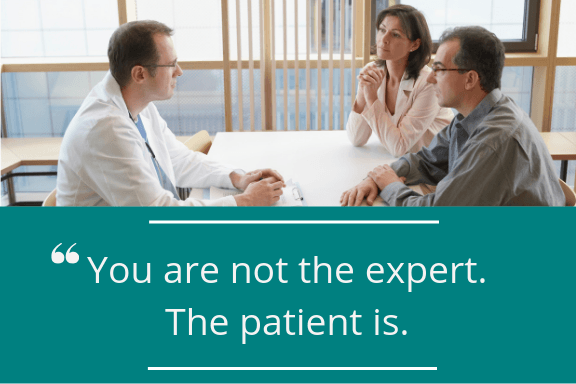Five Things I Wish I Had Known About Communication and State of Mind
Here is the final part of my interview by Christina D. Warner, as part of her interview series with leaders in healthcare. The article was originally published in Thrive Global on May 30, 2019.
In my opinion, we cannot talk about improving workplace communication without digging deeper to look at how our communication is impacted by whether we are in a receptive or a reactive state. This is where mindful communication comes in, to help create a more harmonious workplace. My focus on the interplay between effective communication and well-being looks at communication skills from a different angle than many.
When managers and employees have the tools to create conscious and collaborative communication, stress levels decrease within all levels of the organization. People are heard and understood. Employee retention increases and engagement improves. When people are able to regulate their emotions, they are less reactive so they communicate without drama. My focus on mindful communication brings the holistic well-being of both the patient and provider to the forefront of healthcare.

I have recently decided to expand my speaking and consulting business to provide services across North America. I’m really excited about this new direction, as improving healthcare services is something that I am very passionate about. One major area of focus in this expansion is continuing to provide keynotes and workshops on mindful communication to healthcare leaders and their teams. In my opinion, the more those within the healthcare system can enhance self-awareness of the factors that influence daily communication, the more this improves both our own experience at work, as well as the patient’s experience within the healthcare system. I’m really looking forward to sharing my perspective and experience more globally.
Here are 5 Things I’ve Learned as a Healthcare Professional
1. You can’t fix the world and you will burn out if you keep trying.
It took me many stressful years of trying to help everyone, despite massive waiting lists, to learn this lesson. When we aren’t being receptive to our own needs, this deeply impacts our ability to be receptive to our clients’ needs. Resentment flourishes and this becomes palpable in the care we provide to our clients. I wish I had learned earlier to set boundaries and say no when I needed to. This does not make you a bad healthcare professional. In fact, it will make you more compassionate.
2. You are not the expert — the patient is.
As a specialist within our respective fields, we have an immense amount of knowledge to share. But the patient is still truly the expert of their own life. Until we can see our patients as equal partners, we will be in a position where we think we need to tell them what to do. I now believe that what we really need to do is to educate and empower, while simultaneously respecting the decisions that patient make. I wish I had received specific training on how to truly listen to my patients’ concerns before giving advice.

3. If you don’t proactively manage the stress of your job, it will catch up to you in the end.
Working in healthcare is a very stressful job. We often work with vulnerable populations who cannot necessarily access the supports they need to change their situation. Workloads constantly exceed what any human being can accomplish in a day. We see clients who are often in an emotionally vulnerable state and do not necessarily have adequate training on how to deal with this. The weight of this can be very heavy and can lead to compassion fatigue and sometimes even to post-traumatic stress disorder. I wish I had been explicitly taught tools to help me process everything that we are exposed to, instead of having to seek this out on my own.
4. People are doing the best they can. Your job is to help them figure out what is getting in their way.
I used to judge clients who weren’t following recommendations. I felt they weren’t invested enough in their own well-being. However, as my practice evolved, I started to realize that when I was encountering a barrier with a client, I needed to become inquisitive to find out what was blocking the client, instead of judging them or seeing their challenges as a character flaw. This shift in perspective can make or break a practitioner’s ability to truly help clients. These are lessons that I have learned from Ross Greene’s work on children, but applying his ideas to clients of all ages will make us all better healthcare practitioners.
5. In any moment of distress, turn inwards before blaming another person.
When we are upset with decisions at work, the way a patient has treated us, or something a colleague has said or done, it is easiest to simply blame the other person. We sometimes discharge our negative emotions onto those around us, contributing to what becomes a toxic environment. However, at some point, I realized that I had the power to choose how I responded to strong emotions. I wish I had learned earlier to let go of issues that are not within my control. Looking inwards at my own responses to challenging situations has drastically reduced my frustration levels at work and has left me in a better position to actually resolve ongoing challenges.
I hope you have found this 4-part series helpful in understanding more about how communication is key to effective patient/professional relationships.
For more, please visit:
If you liked this post, you might also like:
How the Assumptions We Make Influence our Reactions





